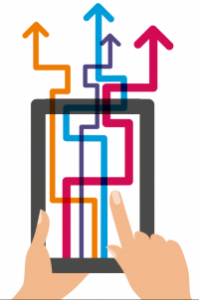 Much has been said about Making Tax Digital and more will be said over the coming months, but the changes being introduced in the first phase from April 2019 are actually fairly straightforward and will only affect VAT registered businesses whose turnover exceeds the VAT registration threshold which is currently £85,000.
Much has been said about Making Tax Digital and more will be said over the coming months, but the changes being introduced in the first phase from April 2019 are actually fairly straightforward and will only affect VAT registered businesses whose turnover exceeds the VAT registration threshold which is currently £85,000.
Making tax digital for VAT
What is Changing?
Currently VAT registered businesses are required to submit VAT Returns, usually on a quarterly basis, via the HMRC online portal. This requires the completion of the nine boxes of the VAT Return, which can be entered manually or electronically onto the portal and then submitted.
There are still some instances where businesses may submit VAT Returns in paper format, but these cases are relatively rare and if you currently fall into one of the categories that can file by paper then this is not expected to change after April 2019.
With effect from 1 April 2019, VAT registered business with turnover over £85,000 will be required maintain the business records in an electronic format and for the VAT return information to be electronically transmitted to HMRC. There will no longer be an option to manually complete the VAT boxes on the HMRC portal.
For most companies they should be able to process and submit their VAT return as HMRC require without the need for adjustment. It is expected that accounting software providers will upgrade their systems to automatically incorporate the necessary changes for this to happen.
If you are preparing your accounts on an accounting system, then you should contact your software supplier to ensure that the system is being upgraded before April 2019.
Who needs to do something before April 2019?
If you do not currently use a commercial accounting package to produce your VAT records, for example you are using spreadsheets or keeping paper records, then you will need to change the way you prepare your records for the purpose of submitting VAT returns.
HMRC have confirmed that keeping records on spreadsheets will meet the requirement for electronic record keeping, but it will be necessary to acquire some bridging software to bridge the gap between your spreadsheets and HMRC’s portal which you currently do manually. HMRC have not yet provided any information on available bridging software but we will update this article to provide a link to further information when we become aware that it is available.
If you currently produce your VAT records manually on paper then you will need to change your processes so that you keep your accounting records in a digital format. This may include using spreadsheets or buying accounting software.
Useful links
HMRC list of software suppliers
Extending Making Tax Digital to Income Tax
HMRC are keen to point out the benefits of making tax digital to businesses and individuals and there will indeed be some benefits. However, it is also fair to say that one of the main motivations behind the introduction of quarterly digital reporting of business records and income details was to target what the Government perceived as a tax gap particularly in the small business space.
Due to resourcing, HMRC have focused on VAT registered businesses in the first instance, but still plan to roll out the next phase by April 2020 which will bringing small businesses and landlords’ income tax into the arrangements. Business may be required to submit their accounting records quarterly during the course of the year and then make an annual end of year submission to take into account any accounting and tax adjustments.
Whilst we don’t know for certain that this will be introduced as planned by April 2020, HMRC are currently running a voluntary pilot scheme.
Making Corporation Tax Digital
The original roadmap for making tax digital included corporation tax. As yet there have been no announcements on this but provided making tax digital for VAT and Income tax are successfully introduced then Corporation tax will surely follow.
The information in this article was correct at the date it was first published.
However it is of a generic nature and cannot constitute advice. Specific advice should be sought before any action taken.
If you would like to discuss how this applies to you, we would be delighted to talk to you. Please make contact with the author on the details shown below.








